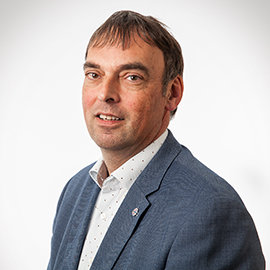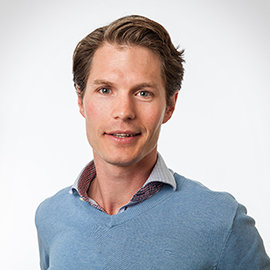NWO KICKstart grant for cross-border projects working on the electrification of the industry
Three promising cross-border collaborative projects of the TU Delft consortium e-Refinery have been granted the electrochemical conversion and materials (ECCM) KICkstart grant by NWO (Dutch Research Council). In two of these projects Wiebren de Jong, Earl Goetheer and Willem Haverkort are working together with German researchers, on innovative ideas in the field of electrochemical conversion for speeding up the electrification of the industry, one of the most pressing challenges of the energy transition.
Electrochemical carboxylation – E-CARB
Earl Goetheer and Wiebren de Jong, both at Process and Energy (P&E) are part of the award-winning E-CARB project team. E-CARB is developing a showcase for a novel electrochemical utilization route of CO2, renewable electricity and circular bio-feedstock for the production of adipic acid, a precursor of nylon 6,6 polymer. E-CARB gathers a consortium of academic experts and companies along the nylon 6,6 polymer value chain from Germany and the Netherlands.
Earl Goetheer: “Basically what we’re doing is taking an unsaturated component called Butadiene and attaching two carbon dioxide molecules to it to get a molecule which is a precursor for Adipic acid, a compound used for making nylon, “a process called carboxylation.”
A waste product of many industrial processes, pure carbon dioxide is easy to obtain and costs virtually nothing. Butadiene is also relatively cheap and the electro-chemical technique required to bring them together requires very little energy so this whole process should be both simple and low-cost. “In this first eighteen-months, we want to demonstrate, together with our partners in the Netherlands and Germany, that this is a scaleable process. And if that works, this will hopefully lead to a larger project where we can actually demonstrate carboxylation production of polyesters.” Better still, Goetheer hopes that by using Butadiene made from sustainably sourced ethanol, the process will eventually become a renewable technology.
E-CARB is a collaboration between the Delft University of Technology, TNO (the Netherlands Organisation for Applied Scientific Research), Ruhr University Bochem and the Fraunhofer UMSICHT Institute for Environmental, Safety, and Energy Technology both in Germany.
Better Electrodes for Water Electrolysis (BEWE)
“The idea is to use simulations and experiments to make better electrodes for use in water electrolysers and so make hydrogen production more efficient,” explains Willem Haverkort of the department Process & Energy. Together with researchers at Veco and Magneto in the Netherlands and RWTH Aachen University and Thyssenkrupp in Germany, Haverkort is working on a way to improve the efficiency of hydrogen-production: “At the moment we don’t completely understand why some electrodes produce more current for the same voltage than other electrodes.” Computational fluid dynamics models have been used to simulate the flows around the electrodes but Haverkort calls these ‘rudimentary’: “To really understand why one electrode is better than another you have to include the effect of bubbles on the electrodes, for example, and that’s not done at the moment. It’s very much an empirical approach that is followed rather than looking at the issue from a more fundamental perspective.”
The ECCM KICkstart project will fund the first eighteen months of a collaborative project to understand how to improve electrode design. Haverkort’s team in Delft will test various types of electrode provided by the project partners and if everyone comes up with similar results, use models to try and predict what changes would make the electrodes better. “It’s not so much about materials, it’s really about using the already existing products to make better shapes of the electrodes. So we’ll use standard Nickel-based electrodes and hopefully come up with a design that releases hydrogen bubbles more effectively and efficiently” - a ‘minimal-risk’ approach which is attractive to manufacturers of electrolysers.
Read more about the ECCM KICKstart award: Thirteen exploratory cross-border collaborative projects start working on ElectroChemical Conversion and Materials | NWO



